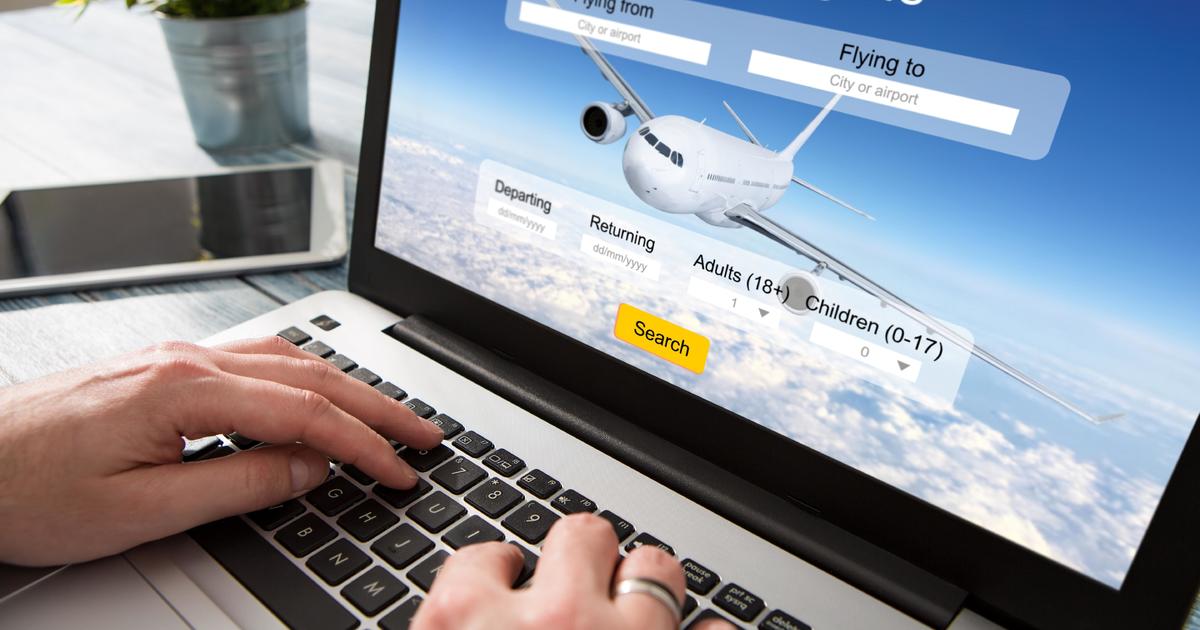Cheap flights during the coronavirus outbreak are tempting. Here's what you should consider before booking
According to Google Flights, it costs under $100 to fly from Chicago to Miami right now, about $228 to fly from Los Angeles to Hawaii and just about $400 to fly from New York to London. It seems like the perfect time to book a trip — except for the coronavirus outbreak that is taking hold across the globe.
As the deadly virus continues to spread, some people are being forced to self-quarantine and work from home, others are being ushered to containment areas, and most of the world is being urged not to travel and to avoid large crowds. So, it should be a no brainer to avoid airports, resorts and big cities.
A few people, however, are shrugging off these warnings, and instead, they're capitalizing on cheap flights. "Bought a $53 flight to Miami in May for a bachelor party. The show must go on," one person told CBS News. "I'm not any more concerned about catching [coronavirus] in Miami than I am in New Jersey."
"I just booked a roundtrip flight for two people to Chicago for $230 on Southwest," another said, also noting they weren't really concerned about catching coronavirus on the trip.
"[I bought a] round trip to New Orleans nonstop for $160 in October," another person said. Despite her trip being six months away, this person is keeping coronavirus in the back of her mind. "Depending on what's going on in October, I'll probably wipe my seat down with a Clorox wipe and wash my hands a bunch," she said. "Other than that I'm not stressing about it!"
While meme culture is perpetuating the idea that millennials are taking advantage of inexpensive flights, and many people are sharing their cheap flight success stories on social media, there are some things one might consider before traveling during the coronavirus outbreak.
1. Can you refund your trip?
Cheap flights are even easier to buy when you realize you don't necessarily have to commit to them. Many airlines are waiving cancellation and change fees, should you book a flight and back out due to coronavirus fears.
Delta has already waived many change fees, according to its website. The airline is willing to work with customers to adjust travel plans, and even switch to other airlines when needed.
"We are also adjusting our schedule in response to State Department and CDC guidance while listening to where customers tell us they want to fly," Delta said. The airline is waiving all change fees on tickets purchased between March 1 and 31.
So, if you book a Delta flight for Miami and then decide by the end of March it's not worth the risk, you can change that trip free of charge.
JetBlue has also waived all change and cancellation fees, according to its site. Most other airlines have added amended cancellation rules to their websites and are also assuring the public that they are taking extra steps to disinfect their planes.
2. Are you going to a high-risk area?
The CDC has compiled a list of cleaning guidelines for airlines, as well as guidelines for people who have traveled or are traveling to high, medium and low risk countries during the outbreak.
If you are traveling to a "Watch Level 1" or low risk area, the CDC does not recommend canceling or postponing your trip "because the risk of COVID-19 is thought to be low." However, if you travel to low-risk areas, you should still take precautions like avoiding contact with sick people, avoid touching your face and thoroughly washing your hands.
If you bought a ticket to a "Watch Level 3" or high-risk area, the CDC recommends you cancel all nonessential travel.
The CDC also has extensive guidance for cruise ships on reporting and treating coronavirus infections of passengers and crew members, and recommends travelers – especially those with underlying health issues – to cancel all cruise ship travel at this time.
3. What precautions should you take?
According to the CDC, it's not necessarily the flights you need to worry about, because the risk of infection on airplanes is low. "Because of how air circulates and is filtered on airplanes, most viruses and other germs do not spread easily on airplanes," the CDC says. However, travelers should try to avoid contact with sick passengers and of course, wash their hands often.
Once you get off your flight, the recommended precautions can vary depending on your age and location.
Older individuals, especially those with underlying health issues, are at a higher risk of getting "very sick" from coronavirus, and the CDC recommends you take steps to avoid crowds.
Some cities may impose mandatory precautions to help prevent the spread of the virus. Washington Governor Jay Inslee said Sunday that his state, where the majority of fatal U.S. coronavirus cases have occurred, is considering measures including mandatory social distancing.
In New York City, officials are recommending people do everything they can to protect themselves, including walking and riding a bike to work instead of taking the bus or subway, CBS New York reports.
Before traveling, check what local officials at your destination are saying about the virus and what precautions different cities are taking.
4. What will happen after your cheap trip?
Since many companies are asking employees who travel to self-quarantine at home when they return, you should consider your work situation before getting on that cheap flight.
It is also worth considering that while the place you are flying to might not have travel restrictions now, that could change if the coronavirus causes a sudden impact. For example, Italy just put a mandatory nationwide lockdown on all 60 million people there until next month.
Johns Hopkins advises that those who have traveled outside the U.S. in the past 28 days and experience symptoms like shortness of breath, fever or cough, or had recent contact with someone who had these symptoms, should tell a health care professional as soon as possible. "Call before you arrive at the doctor's office or emergency room, and tell them about your symptoms," the university said.




